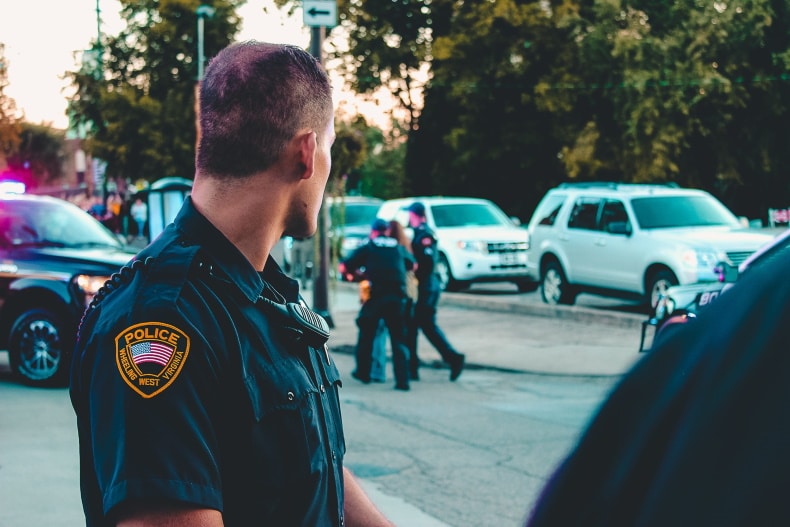- DUI
- Criminal Defense
- Florida DUI
- Traffic Offenses
- Drug Charges
- Marijuana Charges
- Violent Crimes
- Domestic Violence
- Temporary Injunctions
- Weapons Charges
- Theft Crimes
- White Collar Crime
- Juvenile Offenses
- Sex Crimes
- Violation of Probation
- Early Termination of Probation
- Seal or Expunge Criminal Record
- Criminal Appeals
- US Federal Offenses
- Misdemeanor Charges
- Felony Charges
- Co-Defendant Cases
- College Student Defense
- College Student Hearings
- FSU Students
- FAMU Students
- Florida Panhandle Arrests
- Extradition to Florida
- Bench Warrants / Warrants
- Emergency Bond Hearings
- Gambling Charges
- Drone Arrests
- Marsy’s Law
- UAS Infractions
- Introduction of Contraband
- Lying to Police
- Locations
- Case Results
- Our Firm
- Media
- Resources
- Blog
- Contact Us
Is DUI Manslaughter a Violent Crime in Florida?
April 7, 2020 Don Pumphrey, Jr. Drunk Driving/DUI Social Share
Florida DUI Manslaughter
It is a sad reality that in the state of Florida, thousands of Floridians die every year as the result of traffic accidents in the state. Unfortunately, some of those drivers are also intoxicated at the time of the accident. There are various crimes which can be charged as a result of causing a crash that results in death or serious bodily injury, but one of the most feared and often misunderstood is DUI Manslaughter and the potential ramifications such a charge brings.
Is DUI Manslaughter Considered a Violent crime in Florida?
This is one of the most commonly asked questions surrounding DUI Manslaughter, whether or not a charge can bring with it the ramifications reserved for “violent crimes.” The short answer is yes, most charges stemming from an accident that results in harm to another are classified as violent crimes, and this includes Florida DUI Manslaughter. The distinction between these various driving crimes can be difficult to decipher, so we have outlined them here.
Types of Vehicular Crimes Classified as “Violent Crimes”
Driving Under the Influence
According to Florida Statutes 316.193 (3)(c)3: DUI Manslaughter is charged when someone operates a vehicle while intoxicated and causes or contributes to the death of a human or unborn baby. It is punishable as a second-degree felony if aid and information is given by the driver, or a first-degree felony if the driver fails to do so. If death is not the result, but rather serious bodily injury, this is punishable as a third-degree felony. The primary distinction between this and the crimes below the fact that the driver must be intoxicated, satisfying the other elements of driving under the influence. If charged with this offense it is crucial to reach out to a qualified and experienced Florida DUI Manslaughter lawyer as soon as possible.
Vehicular Homicide
According to Florida Statutes § 782.071: Vehicular Homicide is the killing of another while operating a motor vehicle recklessly. This is punishable as a second-degree felony normally, but if aid is not rendered at the scene, it can become a first-degree felony. Vehicular homicide requires death to be a result, unlike DUI Manslaughter the driver need not be intoxicated in order to be found guilty.
Reckless Driving Resulting in Serious Bodily Injury
According to Florida Statutes § 316.192: A person can be guilty of reckless driving when driving in “willful or wanton disregard for the safety of persons or property” or while evading the police. If there is serious bodily injury as a result of the reckless driving, then a person can be charged with a third-degree felony in the state of Florida. This is a step down from Vehicular Homicide, as it is not the result of a death, and thus the punishment is less severe. It’s important to remember that just like all the other crimes included in this section, this is considered a violent crime.
Crash Involving Death or Personal Injuries
According to Florida Statutes § 316.027: An accident that is purely by chance can still land one of the drivers criminal charges if leaving the scene of an accident. This is often colloquially referred to as a “Hit and Run.” This is charged as a third-degree felony if a person is injured, but not rising to the level of “serious bodily injury,” A second-degree felony if there is serious bodily injury, and a first-degree felony if the result was death. Even though a collision can be one hundred percent without blame on a driver, a violent crime charge can still arise if the person chose to leave the scene of the accident.
Criminal Defense Attorney Near Me
Don Pumphrey and the firm have years of experience representing defendants in traffic offenses such as DUI Manslaughter. They are dedicated to defending the rights of clients and will fight for the best possible disposition or dismissal of your case. Call (850) 681-7777 or send an online message today to discuss your rights during an open and free consultation with a DUI Manslaughter attorney in our legal team.











